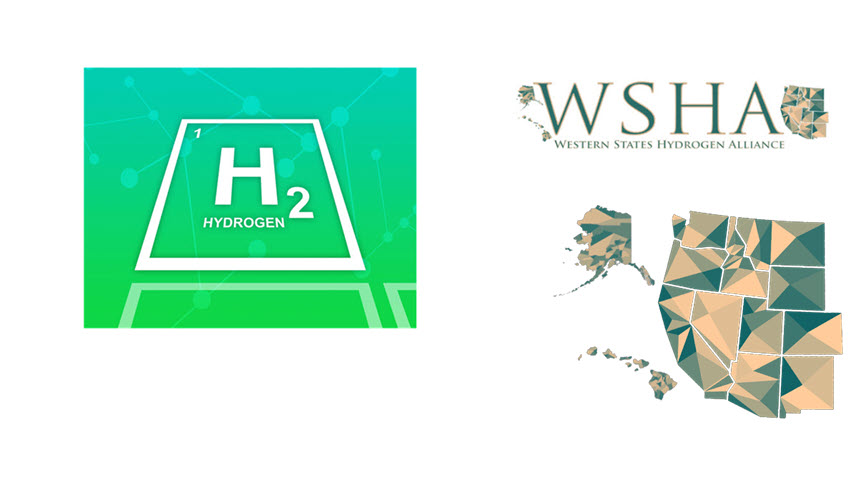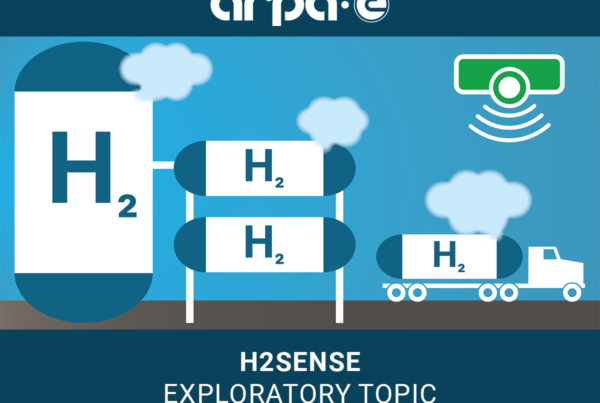
While 10.08 tends to be a day of major announcements in any given year for the hydrogen sector, 10.08.2021 was definitely an important day for hydrogen in California.
Over the past several months members of the Western States Hydrogen Alliance (WSHA) worked closely with Senator Archuleta’s Office in order to craft the language for (SB) 643, and then WSHA and the senator’s office guided the bill through the challenging political waters that are the hallmark of Sacramento, California. Thanks to their relentless work Senate Bill (SB) 643 was signed into law on 10.08.
 According to WSHA, SB 643 was the first hydrogen bill to have been signed into law within the past three years, which makes the win all the more impressive given that WSHA was only formed in the autumn of 2020.
According to WSHA, SB 643 was the first hydrogen bill to have been signed into law within the past three years, which makes the win all the more impressive given that WSHA was only formed in the autumn of 2020.
SB 643 is designed to direct the State Energy Resources Conservation and Development Commission, in consultation with the state board and the Public Utilities Commission, to prepare a statewide assessment for off-road, buses, and heavy-duty fuel cell electric vehicles (FCEVs). This assessment will consider but not be limited to evaluating hydrogen production, distribution equipment, airport electrification, port electrification, and other areas to advance the adoption of FCEVs. Furthermore, the report will enable the state to determine if current efforts across the hydrogen infrastructure spectrum are sufficient to meet the goals in Executive Order No. N-79-20 or a similar directive issued by a regulator in the state, and this assessment will complement the objectives of Assembly Bill 8. An additional benefit of the new law is that the assessment will need to be done at least once every three years, which will help to maintain the focus on building an effective hydrogen economy.
When WSHA’s executive director Roxana Bekemohammadi was asked how it felt to be part of the only hydrogen advocacy organization to get a hydrogen bill passed recently, Roxana had the following to say:
“We are thrilled at WSHA for formulating legislation that could survive the hostile political environment in California, and we largely thank our Board leadership with Ballard, Hyundai, and Zero Emission Industries at the helm, our political representation, and most importantly Senator Bob Archuleta’s commitment to the hydrogen industry and Senate Bill SB 643. The passing of SB 643 ensures the State of California will be comprehensively assessing the need for hydrogen production, distribution, and infrastructure to support fuel cells in the commercial space, in addition to the synergistic role hydrogen can play in grid resilience and energy storage every three years for nearly a decade. That allows California to properly support the roll out of fuel cells in heavy-duty applications, and also acknowledge how hydrogen can be a solution to many of the state’s problems with its electrical grid. We truly believe that the implementation of this bill will be integral to the successful adoption of hydrogen and fuel cells in high volumes.”
However, California has been slow to adopt hydrogen on a scale needed to create and maintain a highly effective hydrogen and fuel cell economy. This is evident in the lack of hydrogen filling stations north of Sacramento, the continuous widespread outages the hydrogen fueling network experiences (on 11.14 https://cafcp.org/stationmap showed that 7 hydrogen stations were down in the San Francisco Bay), and the lack of an appropriate heavy-duty refueling network paired with a tight integration to hydrogen producers. When asked what she felt hydrogen and fuel cell companies could be doing to support hydrogen legislation in California, Roxana stated:
“There has never been a more significant time for the hydrogen and fuel cell industry to fight for a seat at the “policymaking table” because key discussions about what the clean energy and transport landscape will look like are happening now. Public policies can either enable or harm emerging industries, so one of WSHA’s critical efforts revolve around creating and influencing policies that allow for greater commercial advancement of hydrogen and fuel cells. We encourage hydrogen and fuel cell companies to join coalitions like ours to maximize the momentum that can be achieved in coordinated high numbers, which we have seen was very advantageous for the commercialization of solar, wind, and now battery energy storage. Also, it is critical to support hydrogen and fuel cell policies created by the hydrogen and fuel cell community versus other interested and adjacent industries. If the hydrogen and fuel cell industry successfully engage in coalition building activities now, we can celebrate more political wins more often and ensure that hydrogen and fuel cells become commercially successful.”
Fuel Cells Works also reached out to Senator Archuleta’s Office since his office was WSHA’s partner for SB 643 to get the senator’s take on the passage of the bill, and Chris Brieño commented that the senator, “carried Senate Bill 643, which tasks the California Energy Commission, in consultation with the Air Resources Board and Public Utilities Commission to prepare a statewide assessment of the fuel cell electric vehicle infrastructure and fuel production needed to support the adoption of more zero-emission trucks, buses, heavy duty and off-road vehicles, because the State and the business community need a complete understanding of our infrastructure’s status to bridge the knowledge gap and make informed long-term decisions about how to meet our emission targets.”
Given that Ballard and Zero Emission Industries are founding members of WSHA as well as highly productive members in the hydrogen sector, Fuel Cells Works reached out to each for comment regarding the passage of SB 643. Ballard’s Tim Sasseen responded by saying, “Ballard is proud to support Senator Archuleta in his leadership in keeping hydrogen in California’s decarbonization plans, to achieve decarbonization as cost-effectively and quickly as possible. California has learned a great deal in early pilot deployments of both fuel cell electric and battery electric vehicles, and now faces the awesome task of building a new energy infrastructure to support these vehicles at scale. We have seen through public transit, the first sector for which California mandated total decarbonization, that hydrogen has become a necessary component of most fleet decarbonization strategies, but only after they considered all aspects of cost and operations at full fleet scale. This bill will [ensure] that California’s energy security does not become solely dependent on expansion of an already over-taxed electrical grid, and identify those areas where hydrogen can capture and distribute renewable energy in the most time and cost-effective manner for the residents of the Golden State.”
Zero Emission Industries’ John Motlow mentioned that, “[i]n order for Zero Emission Industries to meet the demand for hydrogen technology by businesses and residents in the State of California, there must be ample hydrogen supply, efficient distribution system, and fueling infrastructure for vessels on our coastal and inland waters. SB 643 helps to ensure this.”
While SB 643 is a major win for the hydrogen and fuel cell industry in California, it is simply the tip of the proverbial iceberg. With California having relied on numerous diesel generators to meet electricity production deficits this year, there is still a lot of work that needs to be done in California where the hydrogen and fuel cell sector is concerned. However, with the dedication of the WSHA team as well as its recent valuable hydrogen legislation success, WSHA will undoubtedly continue to be a beacon of meaningful hydrogen legislation advocacy in the western U.S. For more information about WSHA please visit https://westernstateshydrogen.org/
As always, Fuel Cells Works will continue to bring most relevant and timely hydrogen news 24×7 through its website fuelcellsworks.com, Meta, LinkedIn, and Twitter. For those wanting the latest industry insights, sign-up for Fuel Cells Works paid subscription which can be done at https://fuelcellsworks.com/pricing/


Jesse Lyon, Contributor
The views and opinions expressed herein are those of the authors and do not necessarily reflect the official policy or position of Fuel Cells Works, its directors, partners, staff, contributors, or suppliers. Any content provided by our contributors or authors are of their own opinion and are not intended to malign any religion, ethnic group, club, organization, company, individual or anyone or anything.
Read the most up to date Fuel Cell and Hydrogen Industry news at FuelCellsWorks




